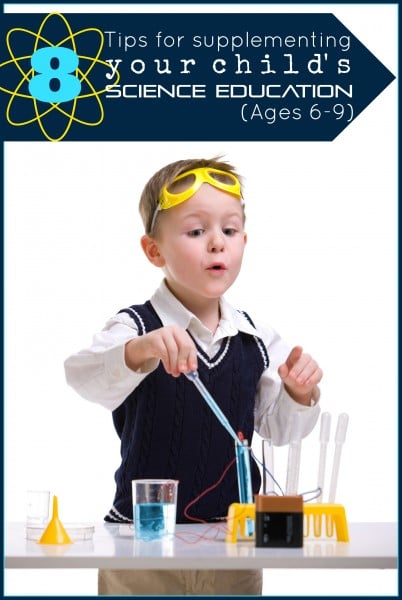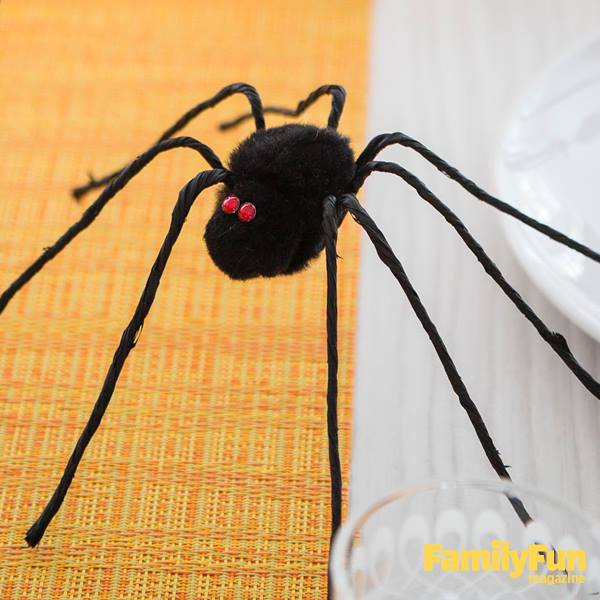8 Tips for Supplementing Your Child's Science Education (Ages 6-9)
There are so many different aspects and directions a science education can take. There’s chemistry and molecules, health sciences, natural sciences, earth science and geology, meteorology, physics, biology, plant and animal science, machines, electromagnetics, and that’s just to name a few! With all of these different elements, plus the basic knowledge of scientific theory and processes, it’s hard to know where to start with your kids’ science education! Reinforcing what they learn at school is crucial, and you can bolster their education and aid in their success with a little bit of effort. Here are 8 Tips for Supplementing Your Child’s Science Education (Ages 6-9).
1. Focus on fun! At the elementary level, it’s most important to engage kids in a meaningful way – which really means you need to make science fun! Kids are more likely to retain what they learn if they are interested in the lesson. For that reason, keep your talks, activities and experiments short and simple so you won’t lose their attention.
2. Be involved. The best way to engage kids at this age? Lots of visually stimulating demonstrations and hands-on activities that focus on basic concepts in a broad range of science disciplines. That means you’ll have to get engaged, too. Participating in the learning process with your children will show them it’s important and encourage their natural curiosity. So dust off some easy experiments you can do in the kitchen or backyard, read up on the scientific method and make some science lab books with your kids to record data!
3. A family af”fair”. Get everyone involved in scientific discoveries! Host a family science fair! One great way to help kids grow more independent and responsible for their education is to have them tackle projects on their own. So pick a night far enough in advance to give plenty of time for work, research and planning. Advertise the science fair in a fun way and make it a big celebratory deal! Everyone in the family can pick their own project and work on it independently and with others when they need help. For younger kids, you might want to partner up with mom or dad. Invite other family members, friends or neighbors to participate as well. Have everyone give a presentation of their project and make sure that there are appropriate rewards for hard work. Take everyone out for ice cream afterward!
4. Don’t ignore your surroundings. You may do a lot of your educational activities indoors – and why wouldn’t you? But a large part of science involves nature, so make sure to take things outside once in a while! Plan plenty of field trips to the park, the forest, the nature preserve, the hiking trails and even the backyard! There are tons of things you can turn into scientific lessons with very little extra planning or effort. Bugs! Worms! Trees! Plants! Cells! Photosynthesis! Life cycles, recycling, composting, weather, animals, physical forces such as movement, velocity, speed, inertia, geology… and so much more! If your kids come up with questions you can’t answer, that’s great! Write them down together and look up the answer online!
5. Utilize local resources. Chances are there are many resources in your area that perhaps you haven’t even thought about. Look online or with your cities travel bureau for ideas. Great places to take your kids that will lead to scientific discussions and discovery include (but are not limited to): working farms, dairies, recycling plants, paper mills, observatories, planetariums, museums, aquariums, nature parks, or even farmer’s markets. Just check online or call ahead to plan a visit, or ask for a schedule of events. Libraries, nature trails, museums and even local universities often have special events for kids that focus on different elements of science.
6. Communicate. If you’re supplementing the education your child receives at school, it’s a great idea to receive some guidance from the teacher. Don’t be afraid to ask what aspects of science they’re working on in class and what they plan to cover throughout the school year. Teachers can be an amazing resource as well, and can refer you to local classes, activities and places they’ve been made aware of. They can also recommend applicable books, websites and videos they’ve come across.
7. Don’t underestimate yourself. You may not be a professional teacher, but you’ve got the skills, awareness and resources to be a teacher to your children. Use everything at your disposal to help you. Don’t overthink it. Keep it simple and relevant to their lives. A great resource for interactive science games, activities, video clips and more is Topmarks. Individual items are classified by type of science and age range. Also, check Great Websites for Kids which lists fabulous educational websites by topic.
8. Play off your child. Know your child’s interests and hobbies. Relate their science studies to the things they are naturally drawn to. Understand their strengths and weaknesses. Encourage them to work on their weaknesses by playing on their strengths. Don’t push too hard, but don’t underestimate them either.
Kimberly Mueller is the “me” over at bugaboo, mini, mr & me, a blog that highlights her creative endeavors. She especially likes to share kid crafts, sewing attempts, recipes, upcycled projects, photography and free printable gift tags/cards. When she’s not enjoying being married to her best friend, chasing after the natives (AKA her three kids) and attempting to keep the house in one piece, you can find her with a glue gun in one hand and spray paint in the other. Aside from DIY pursuits, she also enjoys writing, reading, music, singing (mostly in the shower) and the color yellow. Kimberly recently published a craft book entitled Modern Mod Podge. You can also find her on Facebook, Pinterest,Bloglovin’ and Instagram. Email her at: bugabooblog(at)yahoo.com
More educational inspiration:
Math Education Literacy Education Art Education
Kimberly Mueller is the “me” over at bugaboo, mini, mr & me, a blog that highlights her creative endeavors. She especially likes to share kid crafts, sewing attempts, recipes, upcycled projects, photography and free printable gift tags/cards. When she’s not enjoying being married to her best friend, chasing after the natives (AKA her three kids) and attempting to keep the house in one piece, you can find her with a glue gun in one hand and spray paint in the other. Aside from DIY pursuits, she also enjoys writing, reading, music, singing (mostly in the shower) and the color yellow. Kimberly recently published a craft book entitled Modern Mod Podge. You can also find her on Facebook, Pinterest, Bloglovin’ and Instagram.









